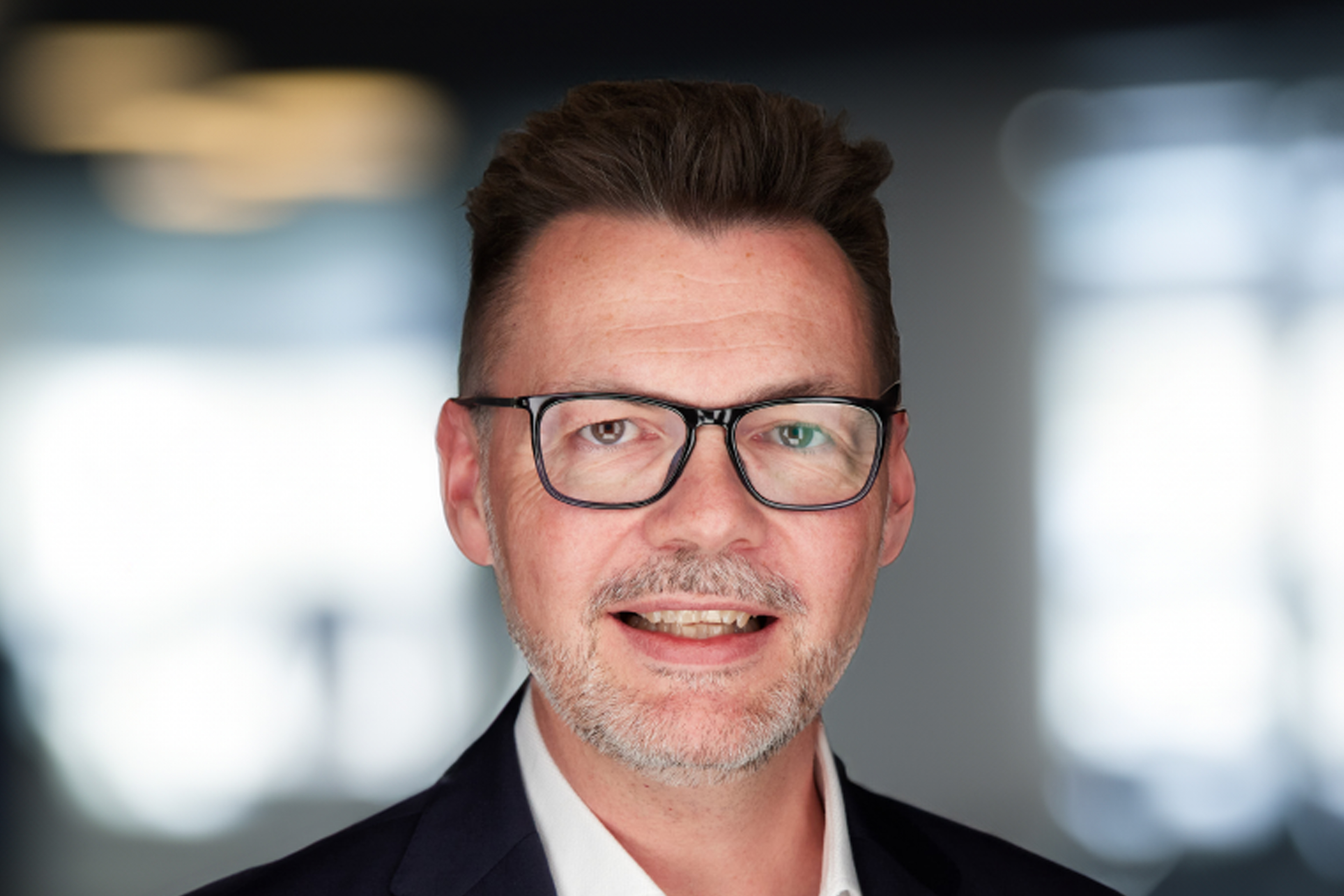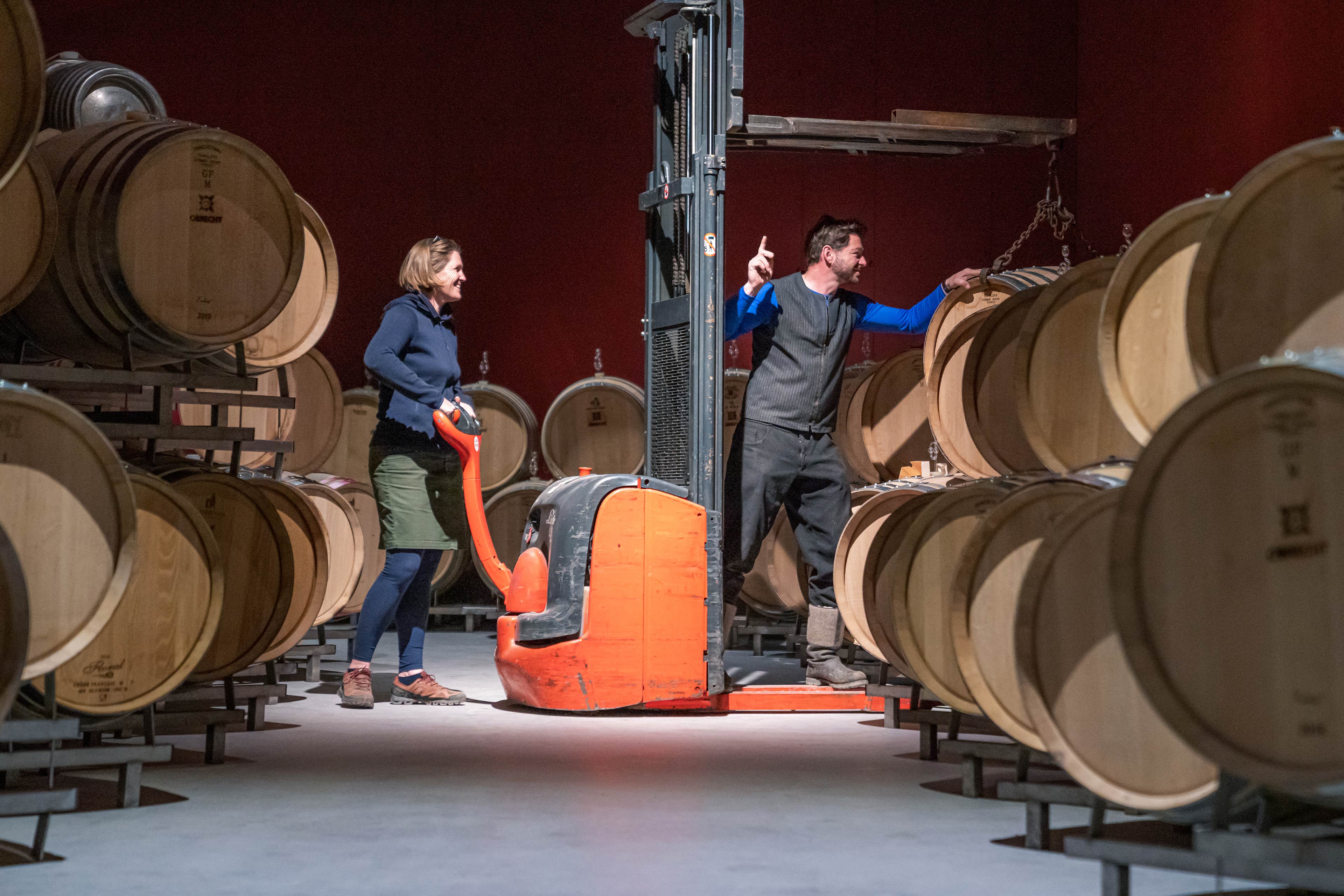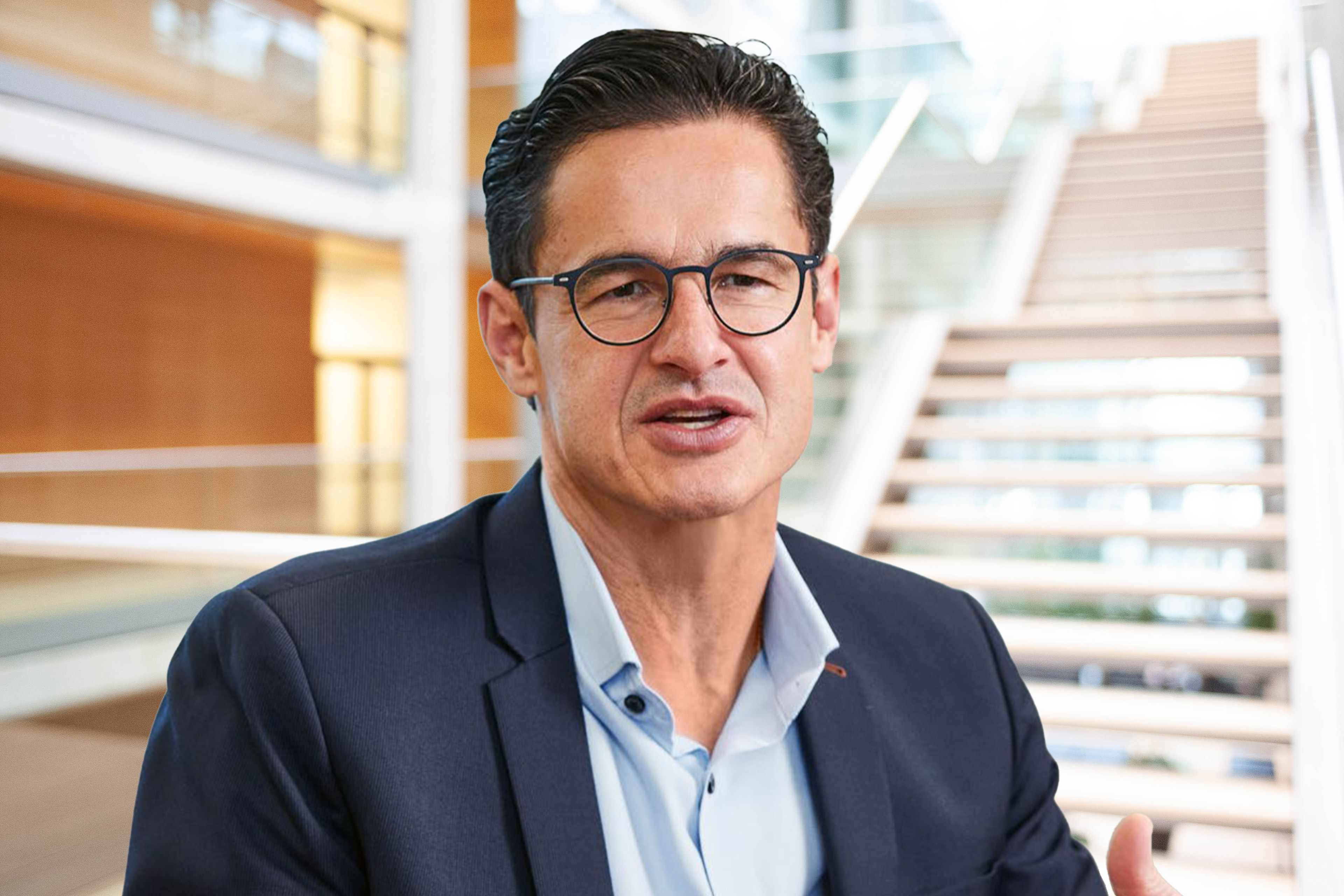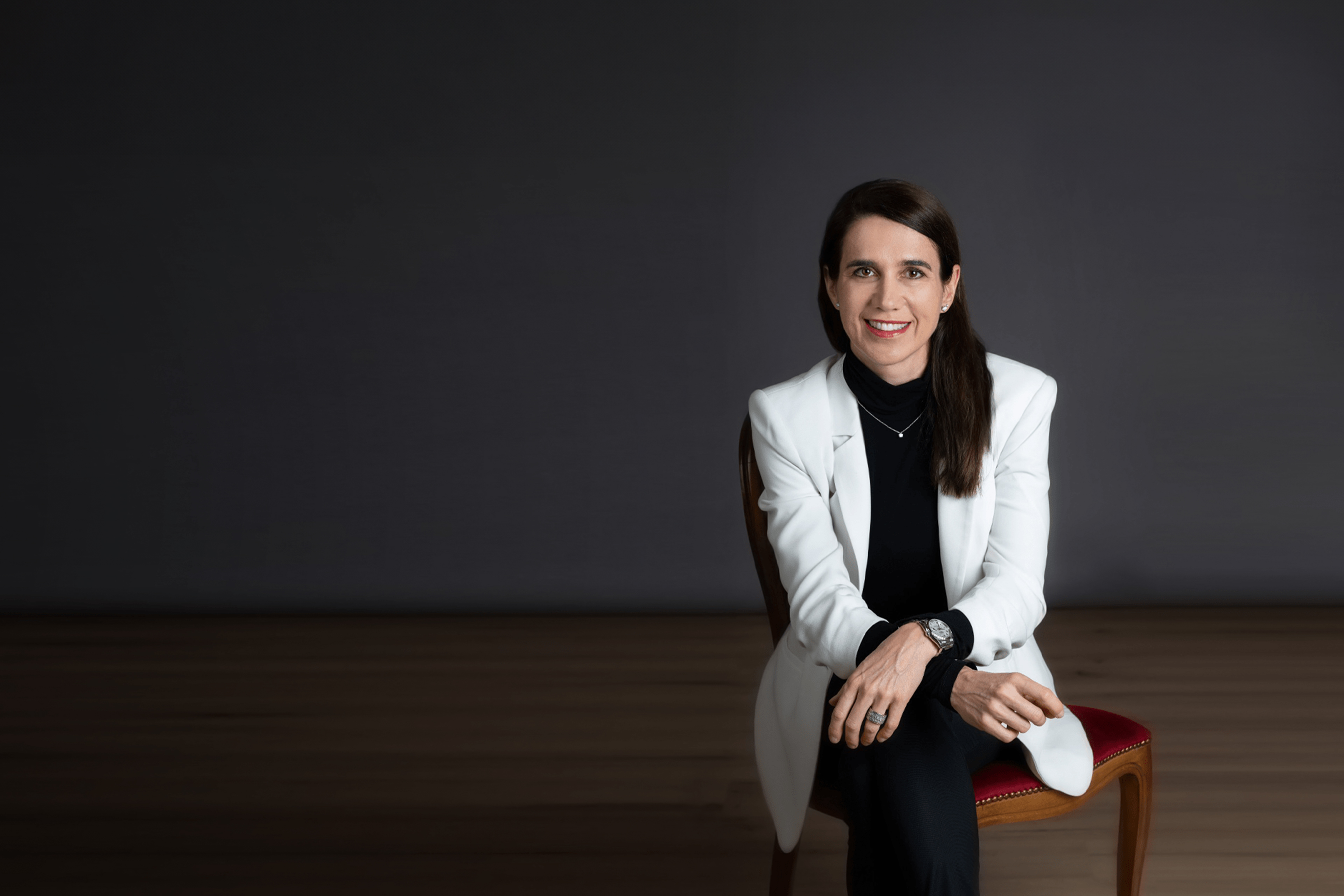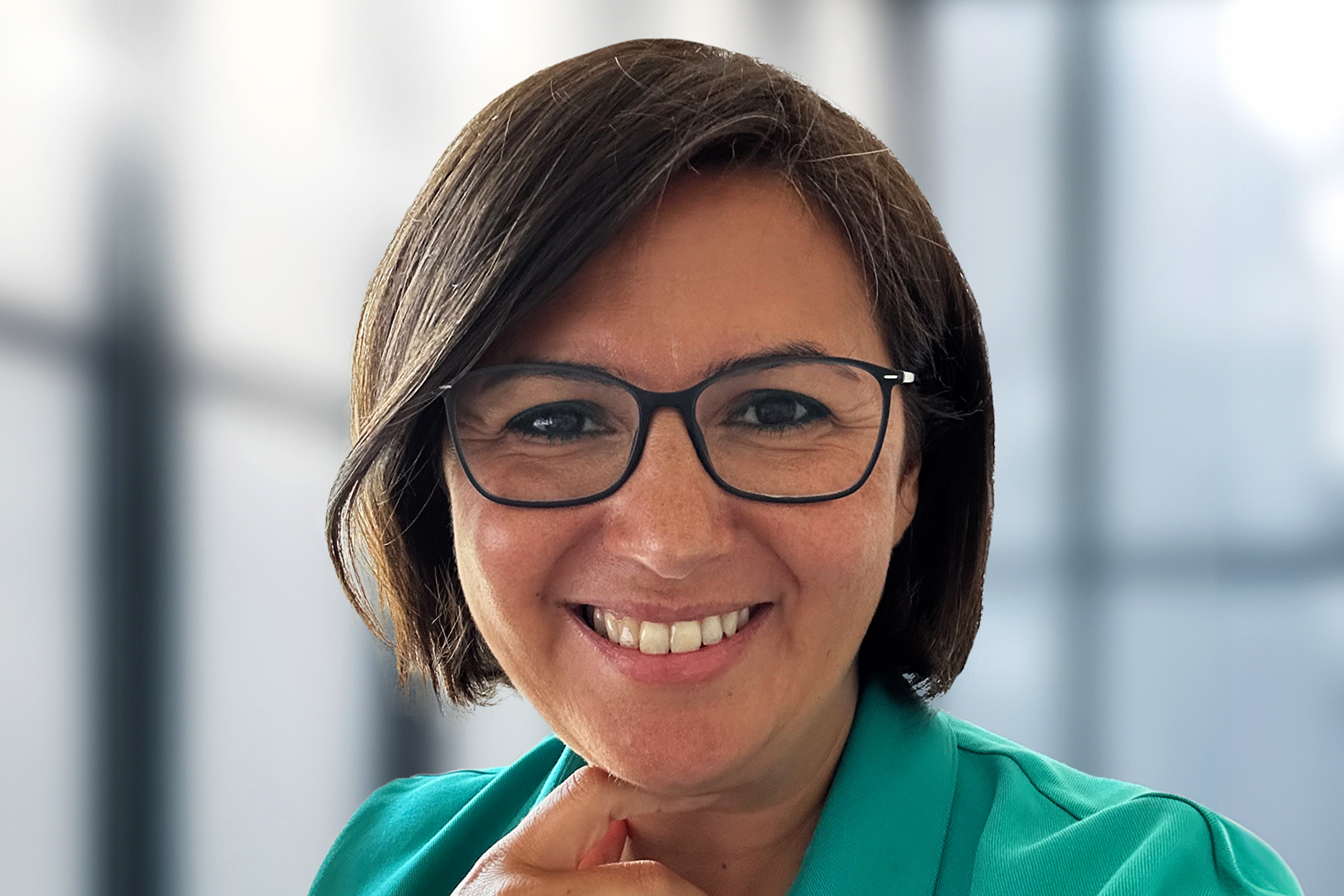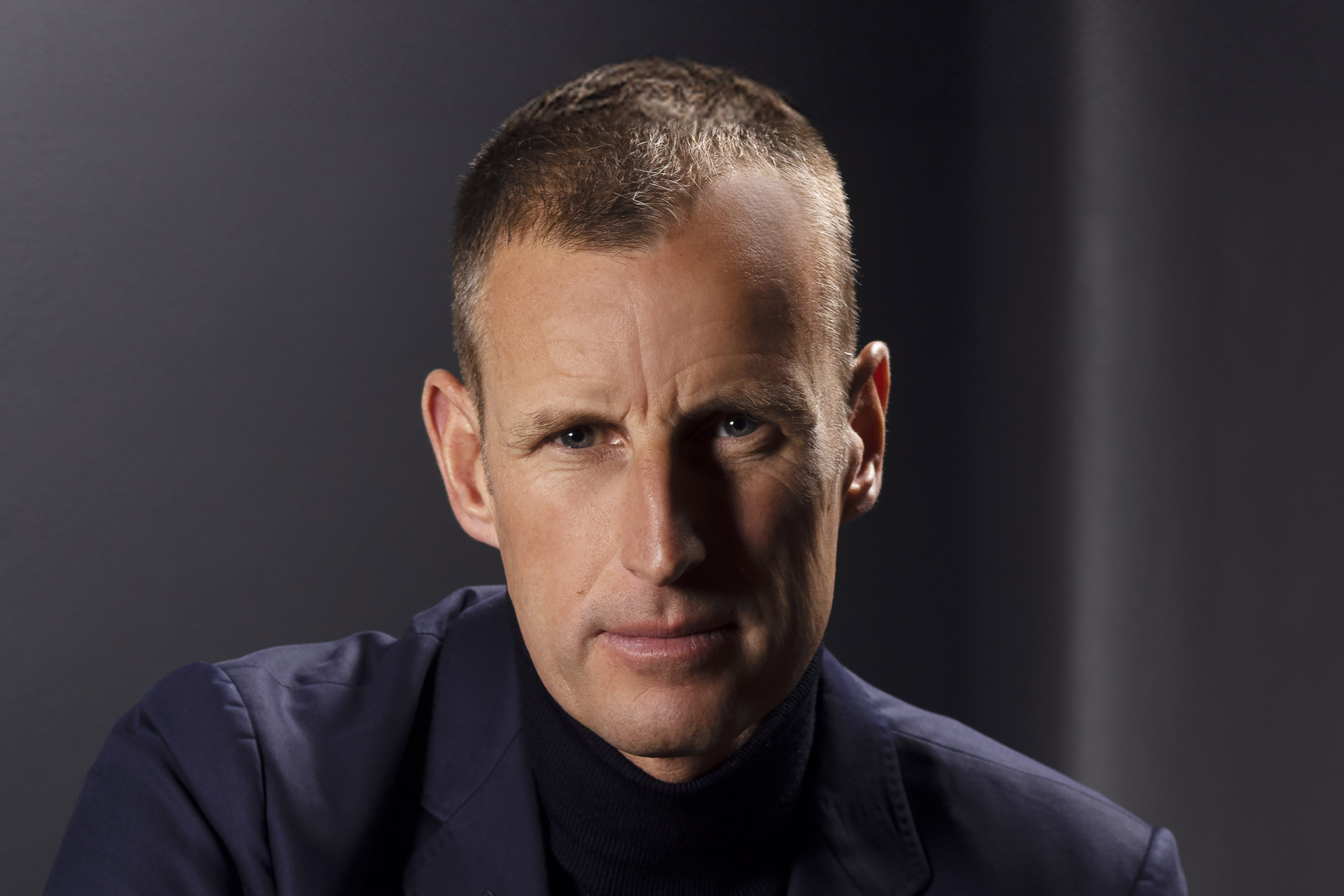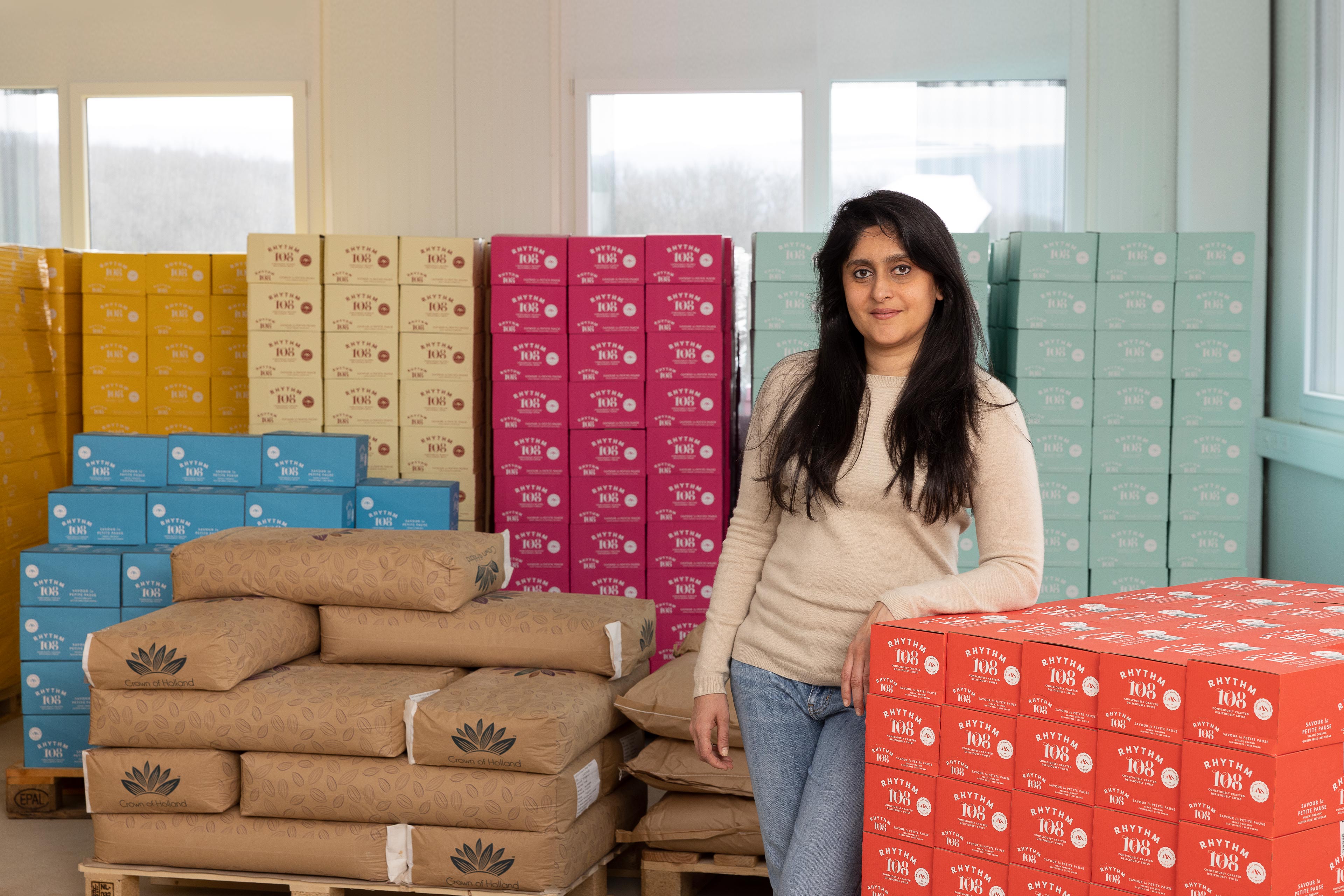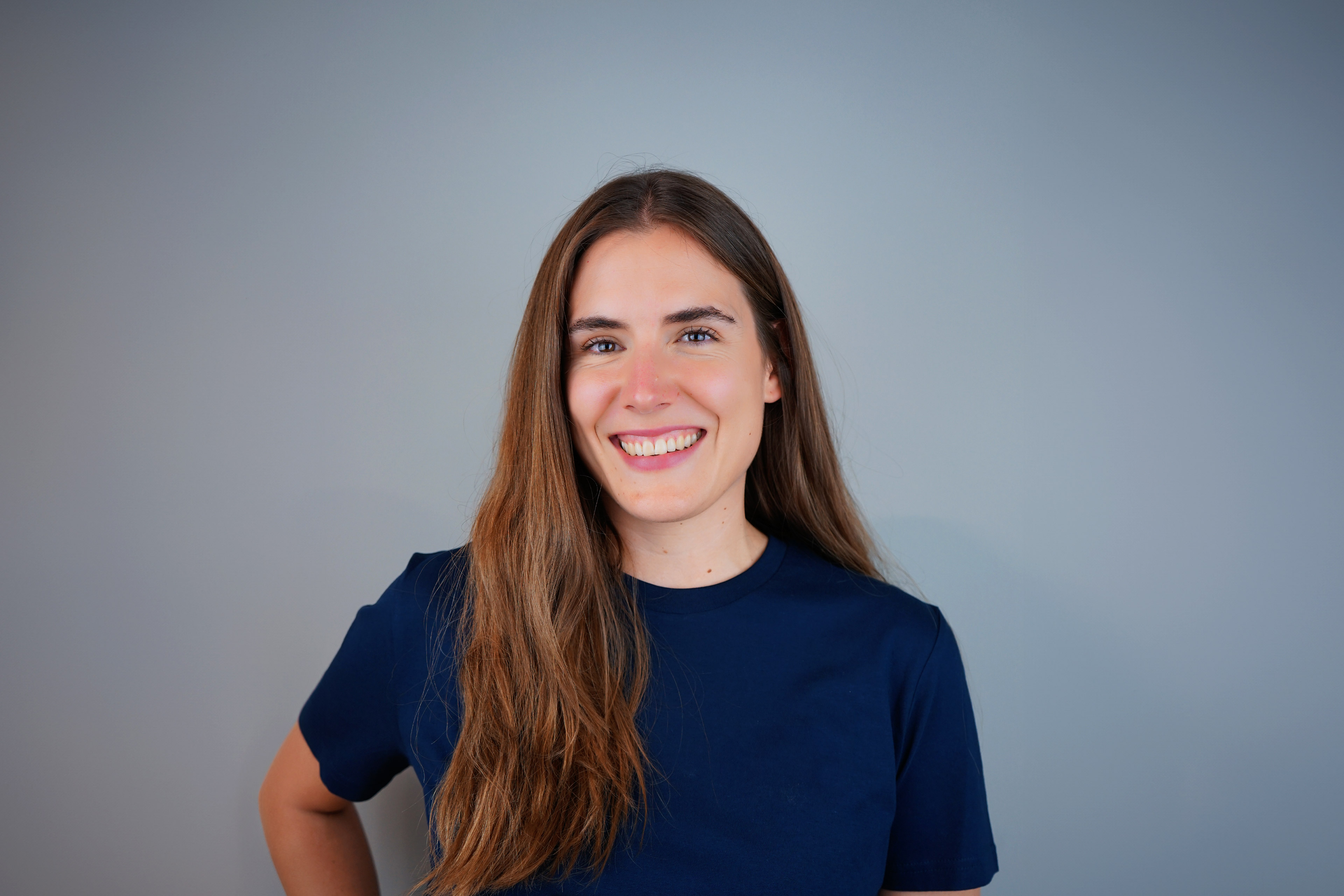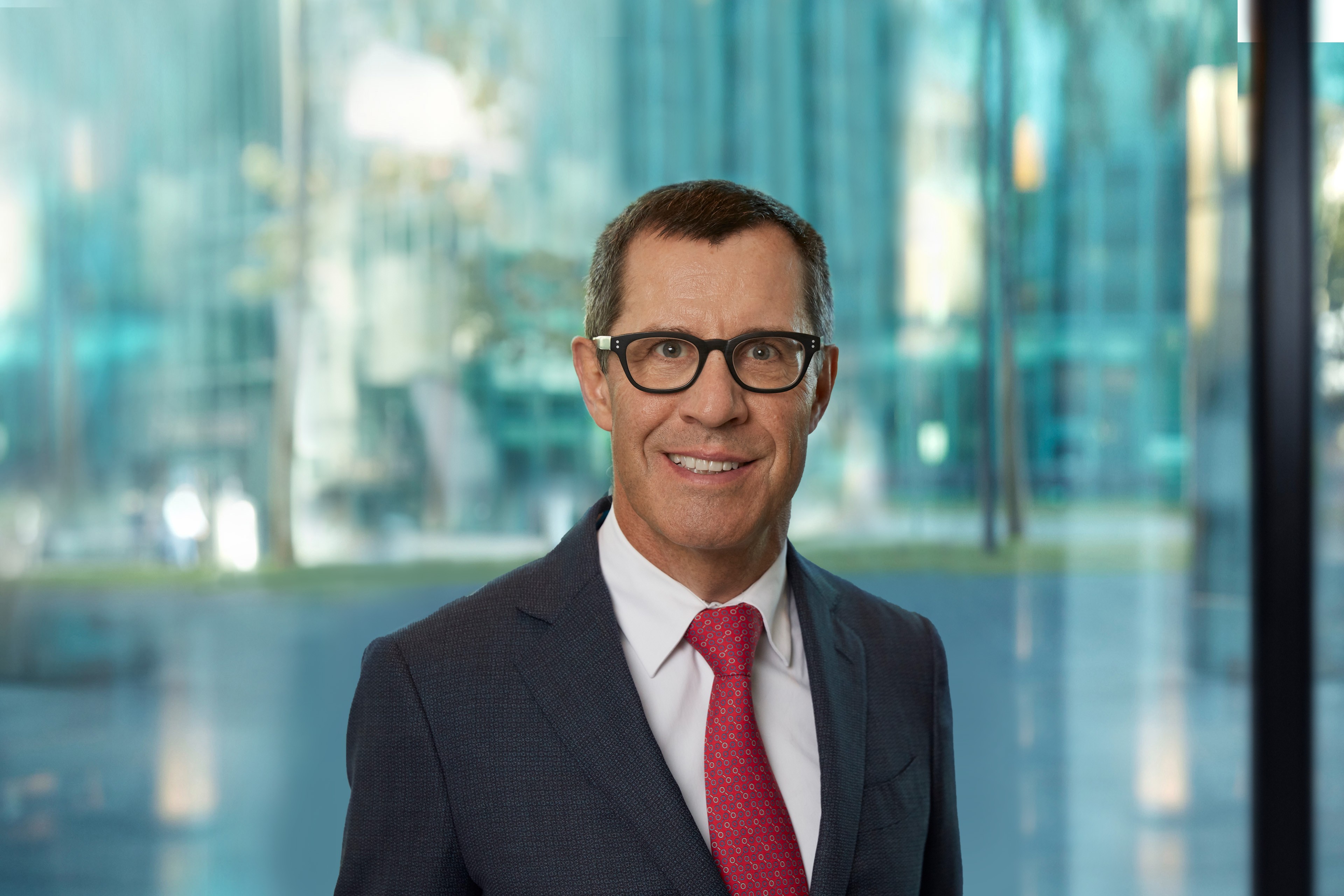EY refers to the global organization, and may refer to one or more, of the member firms of Ernst & Young Limited, each of which is a separate legal entity. Ernst & Young Limited is a Swiss company with registered seats in Switzerland providing services to clients in Switzerland.

“In essence, our job as higher education institutions is to educate young people, to ensure that they have a place in society and that they’re happy
Luciana Vaccaro
Originally from Naples where she grew up and studied physics, Luciana Vaccaro moved to Switzerland in 1996 to complete a PhD in microengineering at EPFL. She held various positions in research and education at the universities of Neuchâtel and Lausanne before heading the Grant Office at EPFL. In 2013 she took the reins of HES-SO as rector. Last October, Luciana Vaccaro was elected president of the umbrella organization swissuniversities and started in her new position on 1 February.
Luciana Vaccaro shares the changes she has observed within universities since the COVID-19 crisis, talks about her experience and tells us what inspires her as rector of HES-SO and new president of swissuniversities.
How would you describe yourself as a leader?
I consider myself a leader who listens a lot, and who makes decisions. I often say that’s what I’m paid to do. I don’t think I’ve ever been the kind of leader to yell or get angry, but I have been able to be tough. Last summer, something clicked for me: a gentleman gave up his position in a line and explained that being kind to others was rewarding for him, too. It made me appreciate the power of kindness. I realized that I can be tough but still be kind, and in the end, achieve better outcomes for everyone. This is an idea I would like to spread throughout the HES-SO. We know that learners will assimilate concepts much better if we can create a positive context. We need to make better use of this principle in education – it will make our students better professionals, better leaders and in my opinion better citizens.
In today’s climate of uncertainty, are you able to look ahead as a leader or are you constantly worried?
Well, I certainly wouldn’t recommend my job to anyone who is a worrier by nature, but I am personally not the anxious type. My motto is “one problem a day”. That means solving 365 problems a year, which is really not bad. Having said that, I have experienced many crises, big and small, personal and professional, and sometimes at the same time. With experience comes a degree of resilience and confidence in my ability to deal with one crisis after another, even if I can’t predict them.
Tackling one problem a day means you solve 365 problems a year, which is really not bad.
What has fundamentally changed at HES-SO since the COVID crisis?
First, the institution has had to adapt as an employer and offer more flexible working conditions. Today, employees of the Rector’s Office can choose to work 50% of their time remotely, as long as this does not affect the institution’s services. We also observe that employees, especially younger ones, are seeking more purpose in their work. Fortunately, a university has an intrinsic purpose because of its mission to create and transmit knowledge. As an employer, we must ensure that we communicate these values to our employees so that we can retain them through benefits other than salary and job security.
In terms of education, digital learning has evolved extremely rapidly, which may have triggered some fears, particularly among teaching staff. Digital technology is certainly an instrument for sharing knowledge, but knowledge itself is still held by people. Even if the delivery of knowledge is changing, the role of the teacher remains essential.
Even if technology is changing the delivery of knowledge, the role of the teacher remains essential.
One change since COVID that I welcome is the return of pedagogy to the university level. While it has always been a central theme in mandatory and post-mandatory education, the debate at university level has focused mainly on research. At the heart of our institutions is once again this idea that research serves to build knowledge for transmission to students who will one day become responsible citizens.
What sort of sustainability issues does a university like HES-SO face?
Obviously, the matter of sustainability has several dimensions. First, governance. An institution like HES-SO has a sustainability strategy involving all stakeholders. Second, it’s about promoting research and teaching in the key disciplines of sustainable development. But there’s also that idea of integrating how we approach sustainability into all other disciplines, for example, the sustainability of medical and social practices, etc. The last dimension is to do with the sustainability of our infrastructure, whether that relates our buildings – we’re based in a Minergie building here in Delémont – or our IT infrastructure. For example, we’re raising awareness among employees of the Rector’s Office about the issue of data storage. As someone who’s been storing e-mails since the dawn of time, I for one am going to start sorting them out.
As someone who’s been storing e-mails since the dawn of time, I for one am going to start sorting them out.
What concrete steps are you taking to improve the health, wellbeing and workplace quality of your people?
As I mentioned earlier, we place great emphasis on remote working. I personally believe we should be encouraging management by objectives, which in my opinion can contribute to a better work-life balance. I also attach great importance to equal treatment. The Rector’s Office has just received Equal Salary certification, which I’m delighted about. We’ve also set up numerous internal and external channels to help our employees with any concerns they may have. In addition, we recently installed a whistleblowing system.
You mentioned equal pay, what about equal opportunities in your institution?
Within the Rector’s Office, management positions can be filled at 80% or 100%. I make sure that a person who is employed on an 80% basis receives additional support to enable him or her to carry out their work, while at the same time taking care of a family, for example. This offer is naturally available to both men and women.
During COVID-19, we noticed a decrease in the number of women applying for research grants. This indicates that women’s activity was slowed down during the period when children were not attending school. We made a call for entries to enable women researchers to relaunch projects that fell by the wayside during COVID. There is also the issue of academic careers, which is very important to me. How can we retain women between 30 and 40 in research and then allow them to move on to professorships? A successful strategy that we have been implementing for the past few years is the tenure track for assistant professorships.
Equal opportunities are not just for women but for many others. We have put in place the “HES-SO without barriers” policy which aims to better integrate people with disabilities, but also the LGBTQIA+ community in our institution.
Do you have any last thoughts that you would like to share with us?
In essence, our job as higher education institutions is to educate young people, to ensure that they have a place in society and that they’re happy. The universities of applied sciences, the universities of teacher education, the universities and the swiss federal institutes of technology all share the same mission and a common objective, which is the wellbeing of future generations. In this regard, it’s a pleasure for me to collaborate with these different institutions and to represent them as President of swissuniversities.
Acknowledgements
We thank Guillaume Perret for taking the photo.
Featured articles and interviews
Sebastian Tobler, Co-founder and CEO of GBY SA
Sebastian Tobler is co-founder and CEO of GBY SA, which has developed a new approach for the rehabilitation of people with reduced mobility. An automotive engineer by training and trade, Sebastian Tobler’s life took a new direction when a bike accident left him paralysed. Alongside his entrepreneurial activities, he heads the SCI-Mobility Lab as Professor at the Bern University of Applied Sciences.
Francisca Obrecht, Weingut Obrecht
Peter Rupp grew up in Sargans, Switzerland, around 20km south of the Hilti headquarters in Liechtenstein. He studied Economics in St. Gallen, then took a post-graduate degree in Engineering in Winterthur.
Peter Rupp grew up in Sargans, Switzerland, around 20km south of the Hilti headquarters in Liechtenstein. He studied Economics in St. Gallen, then took a post-graduate degree in Engineering in Winterthur.
Monika Zihlmann, Global Digital Commercial Platforms
Monika Zihlmann, Vice President Global Digital Commercial Platforms at Smith+Nephew, discusses the trends and pressures shaping the medtech industry and explains why now is the time to embrace a multi-channel customer engagement model.
Serra Bicak is Senior Vice President Reckitt Africa Middle East at Reckitt Hygiene. She has lived and worked in eight different countries for various roles during her career in fast-moving consumer goods. Serra Bicak is passionate about diversity, equity and inclusion (DE&I) and leads Reckitt Hygiene’s gender balance program.
Patrick Pruniaux, Chairman & CEO of Sowind Group
Patrick Pruniaux has a background in business administration and began his career in the watch industry at TAG Heuer. Always fascinated by innovation, he joined Apple in 2014 and oversaw the launch of the Apple Watch. Following a move to Kering in 2017, he managed the Ulysse Nardin and Girard-Perregaux watch brands. In 2022, Patrick Pruniaux spearheaded the historic management buyout and now serves as CEO of these two brands within Sowind Group.
Siddhi Mehta, founder and CEO of Rhythm 108, talked to us about sustainability, craftmanship – and how her company combines heritage and innovation to take the Swiss chocolate tradition into the future.
Judith Häberli, CGO and co-founder of Urban Connect as well as EY Entrepreneur Of The Year™ 2023 Switzerland winner in the category "Emerging Entrepreneur", shares her motivation for starting a corporate mobility platform and explains why real change only happens when companies work together.
As Country Managing Partner at EY in Switzerland, Stefan Rösch-Rütsche leads the Swiss practice with more than 2,300 employees. Stefan is passionate about building diverse teams, supporting inclusive growth, empowering employees and activating the full potential of EY in order to collectively deliver the best client experience possible. Especially now during these uncertain and challenging times.



